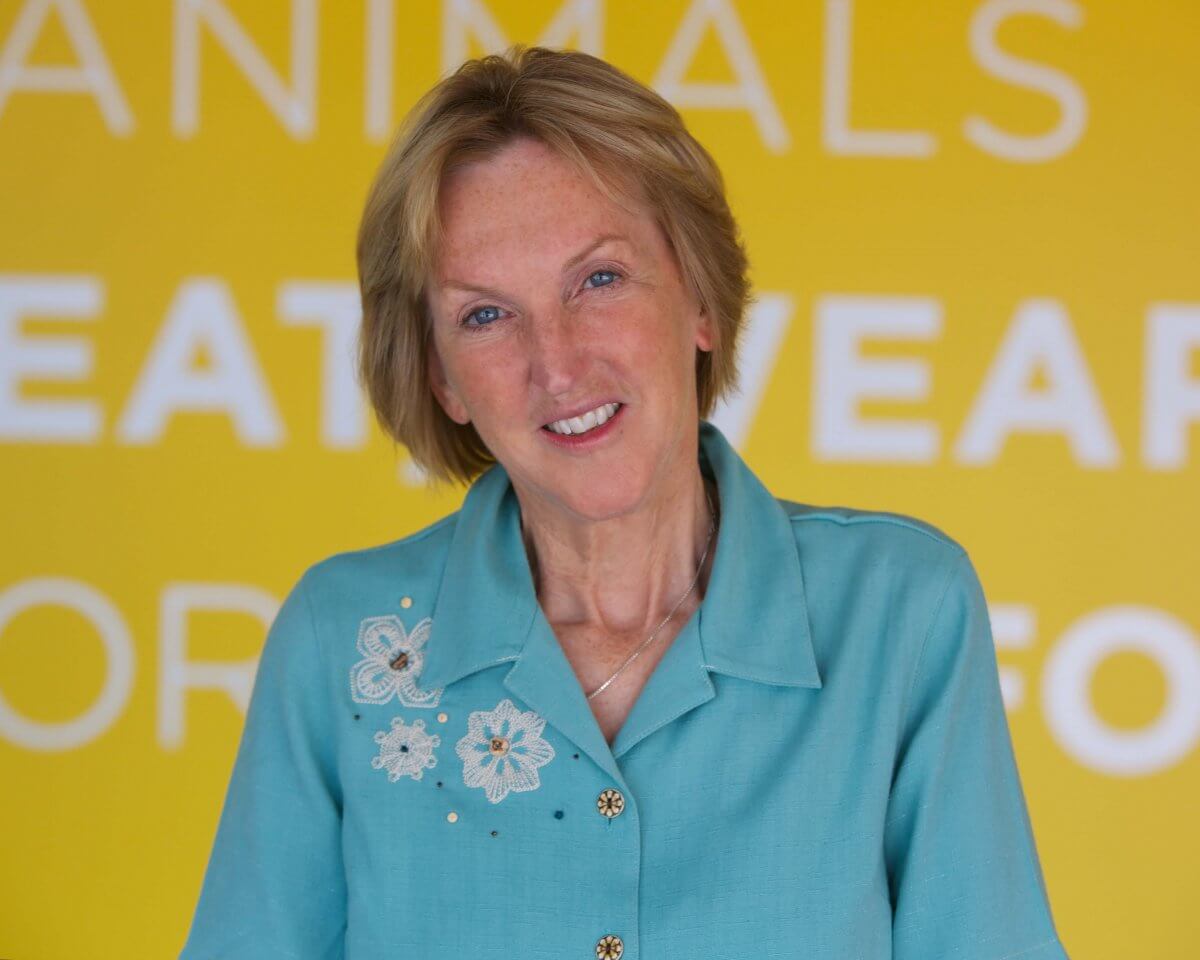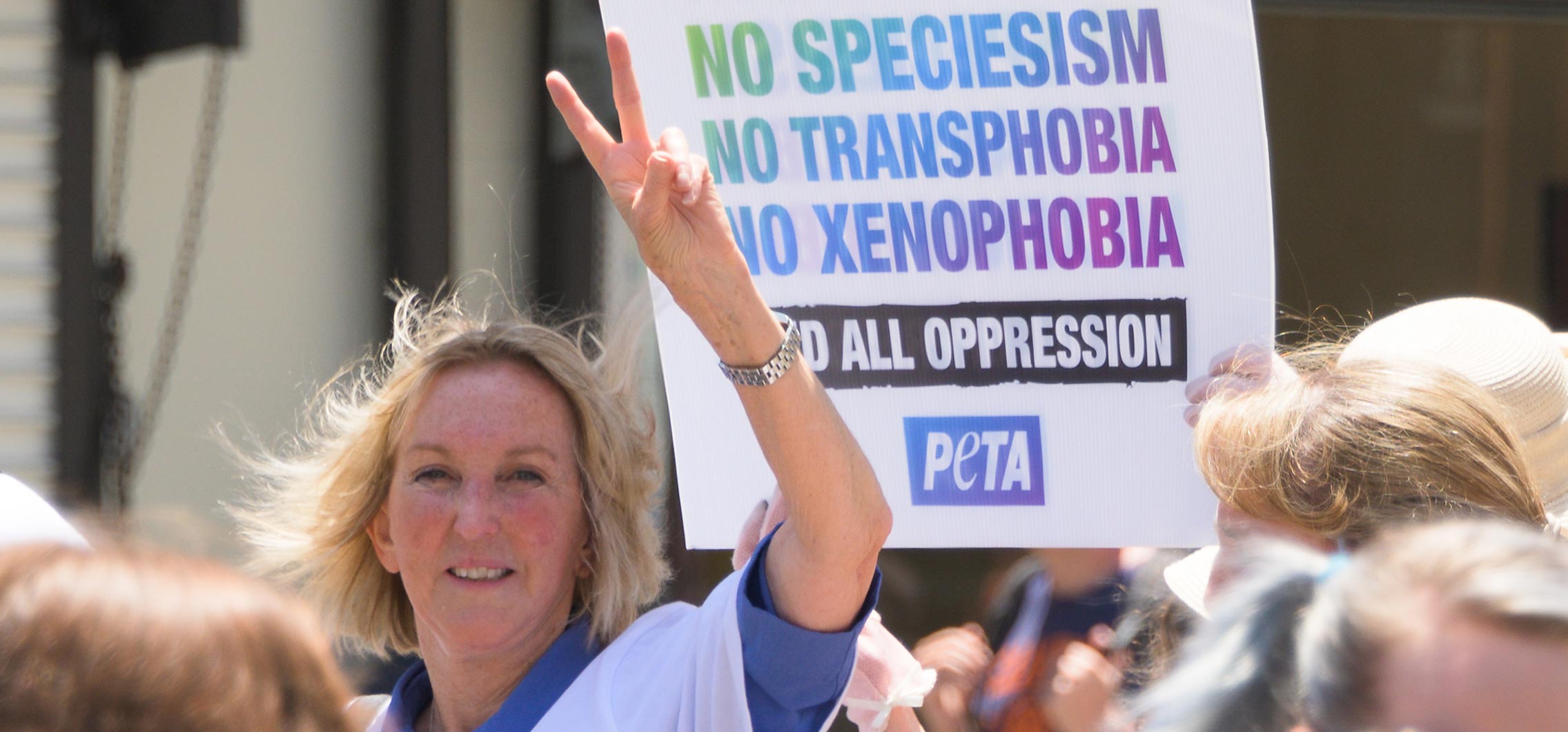Understanding Ingrid Newkirk's Perspective On Animal Companionship And "Pet Ownership"
The name Ingrid, a truly lovely and somewhat timeless choice, carries with it a rich history, you know, stretching back to Old Norse roots. It means something like "fair" or "beloved," perhaps even "Ing's beauty," with "Ing" being an old god, a deity of fertility and prosperity, apparently. This name, it's pretty evocative, really, bringing to mind figures like the luminous Ingrid Bergman, whose appeal, as a matter of fact, was strong enough to give it a kind of universal charm. It's quite a name, isn't it, full of depth and a certain kind of radiant quality.
So, too, when we think about Ingrid Newkirk, the prominent co-founder of People for the Ethical Treatment of Animals (PETA), the name itself seems to hint at a deep connection to life and perhaps even a form of care. Her work, you see, has profoundly shaped conversations around how humans interact with other living beings, challenging many long-held beliefs about animals in our society. This makes any discussion about "Ingrid Newkirk pet ownership" a bit more nuanced than you might first imagine, as it touches on much broader ethical questions.
We're going to explore, in a way, what "pet ownership" might mean through the lens of Ingrid Newkirk's well-known advocacy for animal rights. It's not just about whether she personally has a furry friend or two, but rather, it's about the very concept of possessing another living creature. Her philosophy, quite significantly, prompts us to reconsider our relationship with animals, urging us towards a more compassionate and, arguably, more just way of living alongside them. This discussion, naturally, invites us to think deeply about the human-animal bond.
Table of Contents
- Ingrid Newkirk: A Public Profile
- Rethinking the Term "Pet Ownership"
- The Philosophy Behind Animal Advocacy
- A Call for Guardianship Over Ownership
- Practical Implications for Animal Companionship
- Supporting Animal Welfare Initiatives
- Frequently Asked Questions (FAQs)
Ingrid Newkirk: A Public Profile
When we talk about Ingrid Newkirk, it's pretty clear we're discussing a figure whose life work has centered around animal advocacy. She's widely recognized as the co-founder and president of PETA, an organization that, as a matter of fact, has been at the forefront of the animal rights movement for decades. Her public persona is inextricably linked to her unwavering commitment to animals, and her views have certainly sparked a lot of discussion, sometimes even debate, about how we treat creatures great and small.
Her work, basically, involves campaigning against animal exploitation in various forms, whether it's in food production, clothing, experimentation, or entertainment. This dedication, you know, means her life is largely public, focused on bringing about a world where animals are not seen as property but rather as beings with their own rights and interests. So, while we might wonder about her personal pets, it's her broader philosophical stance that truly defines her approach to human-animal relationships.
Here's a quick look at some general details about her public role:
| Aspect | Details |
|---|---|
| Role | Co-founder and President of PETA (People for the Ethical Treatment of Animals) |
| Primary Focus | Animal rights advocacy, promoting veganism, ending animal testing, discouraging the use of animals for entertainment, and challenging animal exploitation in various industries. |
| Public Stance | Known for her strong, often provocative, advocacy for animal liberation and the idea that animals are not ours to use. |
| Influence | A leading voice in the global animal rights movement, influencing public opinion and corporate practices. |
Rethinking the Term "Pet Ownership"
The very phrase "pet ownership" is something that, in some respects, Ingrid Newkirk's work challenges quite directly. It's a concept deeply ingrained in our society, isn't it, the idea that we can own an animal much like we own a piece of furniture or a car. But her advocacy, you know, pushes us to question this very notion, suggesting that perhaps a living, feeling being cannot truly be "owned" in the same way an inanimate object can. This perspective, actually, asks us to consider the inherent rights of animals.
She, and PETA generally, argue that using the term "owner" can, in a way, reduce an animal to property, diminishing their status as individuals with their own needs and desires. This isn't just about semantics; it's about a fundamental shift in how we perceive and relate to animals. It's about moving from a mindset of dominion to one of respect and, perhaps, even kinship. This shift, basically, means a lot for how we treat our animal companions, or rather, the animals who share our lives.
The conversation, therefore, moves beyond simply having a cat or a dog. It's about the power dynamics involved. If we "own" something, we typically feel we have complete control over it, right? Ingrid Newkirk's philosophy, however, suggests that this control should be tempered by ethical considerations and a recognition of the animal's autonomy, so it's a very different way of looking at things. This perspective, you know, invites us to consider a more egalitarian relationship with animals, one where their well-being is paramount.
The Philosophy Behind Animal Advocacy
At the heart of Ingrid Newkirk's stance on animals is a deep-seated philosophical belief in animal liberation. This isn't just about preventing cruelty, though that's certainly a part of it. It's about recognizing that animals, like humans, have an inherent right to live free from exploitation and suffering. This perspective, in a way, draws parallels between human rights and animal rights, suggesting that species alone shouldn't determine who gets to live free and who doesn't. It's a powerful idea, really, and it challenges many conventional thoughts.
Her work often highlights the sentience of animals – their capacity to feel pain, joy, fear, and a range of other emotions. If animals can feel, then, arguably, they should be afforded moral consideration. This means, for example, that using animals for our own purposes, whether for food, clothing, or entertainment, becomes ethically questionable. This philosophical grounding, naturally, informs every aspect of PETA's campaigns and Ingrid Newkirk's public statements, so it's pretty central to everything.
This approach, you know, encourages us to extend our circle of compassion beyond our own species. It asks us to consider the lives of animals not just in terms of their utility to us, but in terms of their own intrinsic value. It's a perspective that, in some respects, calls for a radical rethinking of our place in the natural world and our responsibilities to all living creatures. This is, basically, the core message that underlies the conversations around "Ingrid Newkirk pet ownership" and her broader work.
A Call for Guardianship Over Ownership
Given her philosophy, it's perhaps not surprising that Ingrid Newkirk and PETA often advocate for using terms like "guardian" or "companion" instead of "owner" when referring to people who live with animals. This linguistic shift, you know, is far from trivial; it's a deliberate effort to change public perception and, ultimately, behavior. It reflects a belief that our role should be one of care and protection, rather than absolute control, so it's a subtle but powerful change in language.
When you act as a "guardian," the focus shifts to the animal's needs and well-being. It implies a responsibility to provide a safe, nurturing environment, to ensure their health, and to respect their natural behaviors. This contrasts sharply with the idea of "ownership," which, in a way, can sometimes lead to animals being treated as disposable commodities. This emphasis on guardianship, basically, promotes a more ethical and compassionate relationship, one built on mutual respect.
For someone like Ingrid Newkirk, the ideal scenario is one where animals are not bred for human companionship, but rather, those already in need are given loving homes. This means promoting adoption from shelters and discouraging practices that contribute to animal overpopulation or suffering. It's a practical application, you know, of the broader philosophical stance that animals deserve to live free from human exploitation, so it's a very consistent message.
Practical Implications for Animal Companionship
So, what does this mean for those of us who share our homes with animals? Ingrid Newkirk's perspective, basically, encourages us to consider several practical implications for our daily interactions. First and foremost, it means providing the best possible care for any animal in our charge, treating them with dignity and respect, so it's about going beyond just meeting basic needs. This involves proper nutrition, veterinary care, and an environment that allows them to thrive, not just survive.
Beyond that, it also means advocating for spaying and neutering to prevent overpopulation and reduce the number of homeless animals. It encourages supporting animal shelters and rescue organizations rather than purchasing animals from breeders or pet stores, which, in some respects, contribute to the commercialization of living beings. This approach, you know, aims to address the root causes of animal suffering, not just the symptoms, so it's a very comprehensive view.
Furthermore, her philosophy suggests we should educate ourselves and others about animal sentience and the ethical issues surrounding animal use. This could involve choosing plant-based diets, opting for cruelty-free products, and supporting legislation that protects animal rights. It's about making conscious choices that align with a compassionate worldview, basically, extending our empathy to all creatures. This kind of active engagement, you know, is a key part of the message.
Supporting Animal Welfare Initiatives
For anyone interested in understanding "Ingrid Newkirk pet ownership" more deeply, it's clear that her focus is less on personal possession and more on universal animal welfare. This means that supporting animal welfare initiatives aligns very closely with the principles she advocates. It's about contributing to a larger movement that seeks to alleviate animal suffering on a systemic level, so it's a very broad vision.
This can take many forms, from volunteering at a local animal shelter to donating to organizations that campaign for animal rights. It also means being a voice for animals in your community, speaking out against cruelty, and educating others about compassionate living. Every little bit, you know, helps to create a more humane world for animals, which is, in some respects, the ultimate goal of her life's work. It's a collective effort, basically, to make a real difference.
Consider exploring the work of reputable animal protection groups, like PETA itself, to learn more about their campaigns and how you can get involved. Understanding the broader context of animal rights, you know, helps to illuminate Ingrid Newkirk's perspective on what "pet ownership" truly entails, or rather, what it should evolve into. You can learn more about animal rights and advocacy through various resources. Also, you might want to learn more about animal care practices on our site, and link to this page for additional resources.
Frequently Asked Questions (FAQs)
What are Ingrid Newkirk's views on animal companionship, actually?
Ingrid Newkirk advocates for a relationship of guardianship and respect with animals, rather than traditional "ownership." She believes animals are not property but individuals with rights, so it's a very different way of looking at things. This means focusing on their well-being, freedom from exploitation, and ensuring their needs are met, you know, without treating them as mere possessions.
Does Ingrid Newkirk believe in "pet ownership" in the conventional sense, really?
No, she generally challenges the conventional concept of "pet ownership" because it implies a property relationship that she believes is unethical. Instead, she promotes the idea of human "guardianship" over animals, emphasizing responsibility and care rather than dominion, basically. This shift in language, you know, reflects a deeper philosophical change in how we relate to other species.
How does PETA define a "pet," in a way?
PETA, influenced by Ingrid Newkirk's philosophy, typically avoids the term "pet" and prefers "companion animal" or simply "animal." This is because "pet" can sometimes carry connotations of amusement or subservience. They emphasize that these animals are sentient beings deserving of respect, not just objects for human entertainment, so it's about elevating their status, really.

Ingrid Newkirk's Biography | PETA

Ingrid Newkirk's Biography | PETA

Ingrid Newkirk's Biography | PETA